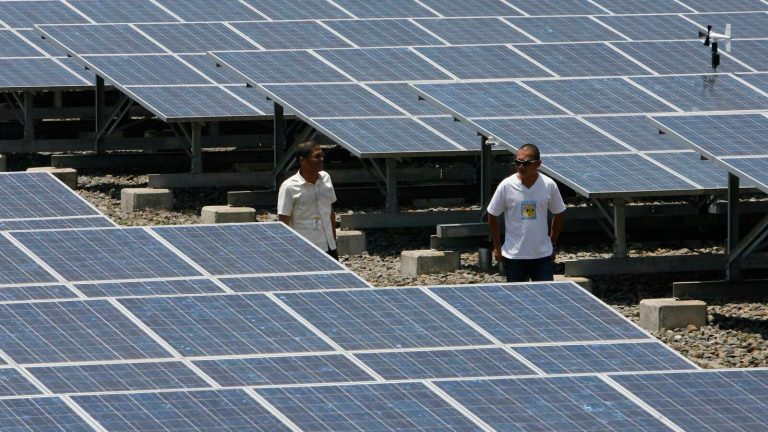NEW DELHI
:
Finland’s state-run energy utility Fortum Oyj is exiting India’s renewable energy market by selling its platform Fortum India Pvt Ltd (FIPL) to New York-based I Squared Capital-backed Hexa Climate Solutions, in a deal that includes management company and carbon credits, two people aware of the development said.
There were five bidders in the sales process run by EY, including Japan’ Marubeni Corp, Dutch pension fund APG, and infrastructure fund manager AP Moller Capital. A total of 10 companies including steel and mining major ArcelorMittal had signed non-disclosure agreements (NDA) for the transaction termed as project Samsara.
Mint couldn’t ascertain the value of the deal that marks an important point in the third-largest Nordic utility Fortum’ exit from India, a market that it entered in 2012.
While the initial proposed deal was for diluting the majority stake in Fortum India Pvt Ltd, the management company, and investing around $300 million to build future projects, Hexa Climate Solutions has acquired 100% stake, along with its 40-member team.
FIPL’s portfolio includes a 206 mega watt (MW) commercial and industrial (C&I) solar-wind hybrid, and another 600 MW of ready to build projects.
“Hexa Climate Solutions has acquired Fortum India Pvt Ltd. An announcement will be made in the coming week,” said the first of the two people cited earlier, both of whom spoke on the condition of anonymity.
Fortum’s Nordic strategy drives India exit
In line with its Nordic strategy, Fortum had earlier announced limiting its exposure in India and evaluating alternatives for its remaining operations, with Fortum India selling projects totaling 1.1 gigawatt (GW).
Hexa Climate Solutions founder and executive chairman Sanjeev Aggarwal, Fortum India president Sanjay Aggarwal and EY declined to comment.
A Fortum Corporation spokesperson in an emailed response said, “As a stock listed company, we do not comment (on) any market rumours or speculations. In May 2024, when divesting the ownership in the 185-MW Indian solar portfolio, Fortum announced that in line with its Nordic strategy, Fortum is limiting its exposure in India and evaluating alternatives for the remaining operations and will not make any further commitments in India. There is no certainty whether the evaluation will result in any transactions and Fortum will inform the market, if and when appropriate.”
I Squared Capital on its part plans to invest around $500 million in Hexa Climate Solutions that has a focus on renewable energy, water and carbon offsets and has a 2.5 GW development pipeline.
Queries emailed to the spokespersons of Marubeni Corp, APG, AP Moller Capital and ArcelorMittal on Saturday night weren’t immediately answered till press time.
Fortum’s global losses
Fortum’s India exit comes in the backdrop of the war in Ukraine resulting in gas supply disruption and substantive losses to Fortum’s majority-owned energy company Uniper, which was subsequently sold to the German government at a loss of around six billion Euros.
In addition, the Russian Federation confiscated Fortum’s Russian plants valued at around five billion Euros. These prompted Fortum to rewrite its playbook and pivot to the Nordic market by paring down its stakes in other geographies, including India.
As part of Fortum Oyj’s exit strategy from the Indian market, London-based Opus Corporate Finance Llp is also running a transaction termed Butterfly for diluting a majority stake in Fortum’s electric vehicle charging network GLIDA, formerly known as Fortum Charge & Drive India that has around 850 charging points, as reported by Mint earlier.
Fortum India has sold 700 MW to Actis Llp, another 230 MW to UK Climate Investments and Elite Alfred Berg; and 185 MW to Malaysia’s state-run oil and gas company Petroliam Nasional Bhd or Petronas’ unit Gentari. This present transaction comes in the backdrop of AM Green, set up by the founders of Greenko Group, Mahesh Kolli and Anil Kumar Chalamalasetty, acquiring Fortum Oyj and Chempolis Oy’s 50% stake in their joint venture—Assam Bio Refinery Private Limited—and also the Oulu-headquartered biotechnology firm Chempolis Oy in which Fortum has a stake, as reported by Mint earlier.
India’s C&I segment has been attracting strong investor interest, with a number of deals in the works given the regulatory landscape being supportive of the space with rules allowing large power users to source energy from the open market rather than the costlier grid. C&I projects are also shielded from risks such as power procurement curtailment by state-run power distribution firms. Also, state electricity regulatory commissions’ implementation of Time of Day (ToD) tariff for large C&I category consumers has helped sustain investor interest.


